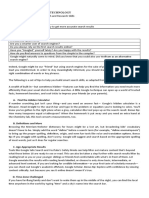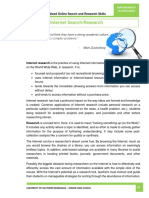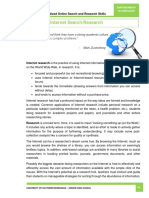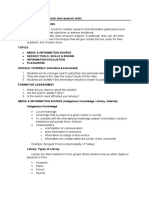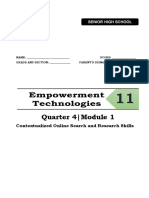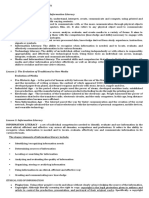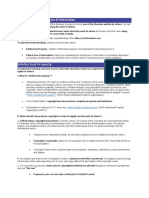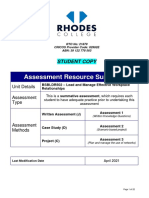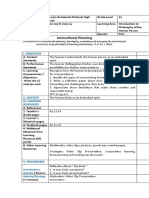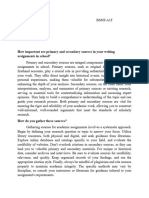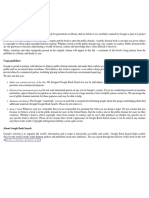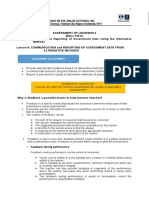0% found this document useful (0 votes)
310 views4 pagesLesson 3
This document provides information about online search and research skills. It discusses what online search is, advantages like large sample sizes and automatic coding, and disadvantages such as lack of security and accreditation. It also describes how search works, important aspects of research like critical thinking and different research skills. Finally, it gives tips for using search engines effectively, such as using definitions, adjusting results for age-appropriateness, and tools for image searching.
Uploaded by
Meg BunielCopyright
© © All Rights Reserved
We take content rights seriously. If you suspect this is your content, claim it here.
Available Formats
Download as DOCX, PDF, TXT or read online on Scribd
0% found this document useful (0 votes)
310 views4 pagesLesson 3
This document provides information about online search and research skills. It discusses what online search is, advantages like large sample sizes and automatic coding, and disadvantages such as lack of security and accreditation. It also describes how search works, important aspects of research like critical thinking and different research skills. Finally, it gives tips for using search engines effectively, such as using definitions, adjusting results for age-appropriateness, and tools for image searching.
Uploaded by
Meg BunielCopyright
© © All Rights Reserved
We take content rights seriously. If you suspect this is your content, claim it here.
Available Formats
Download as DOCX, PDF, TXT or read online on Scribd
/ 4








